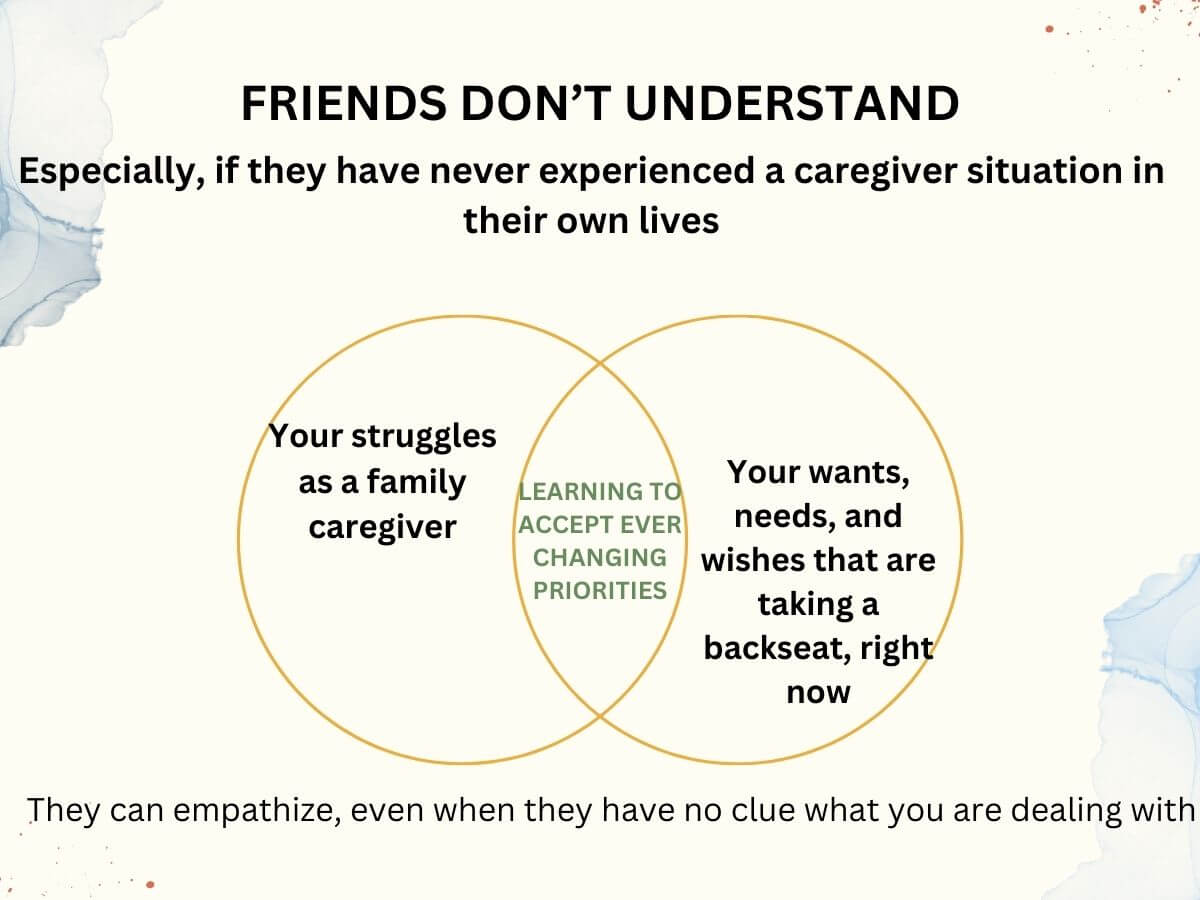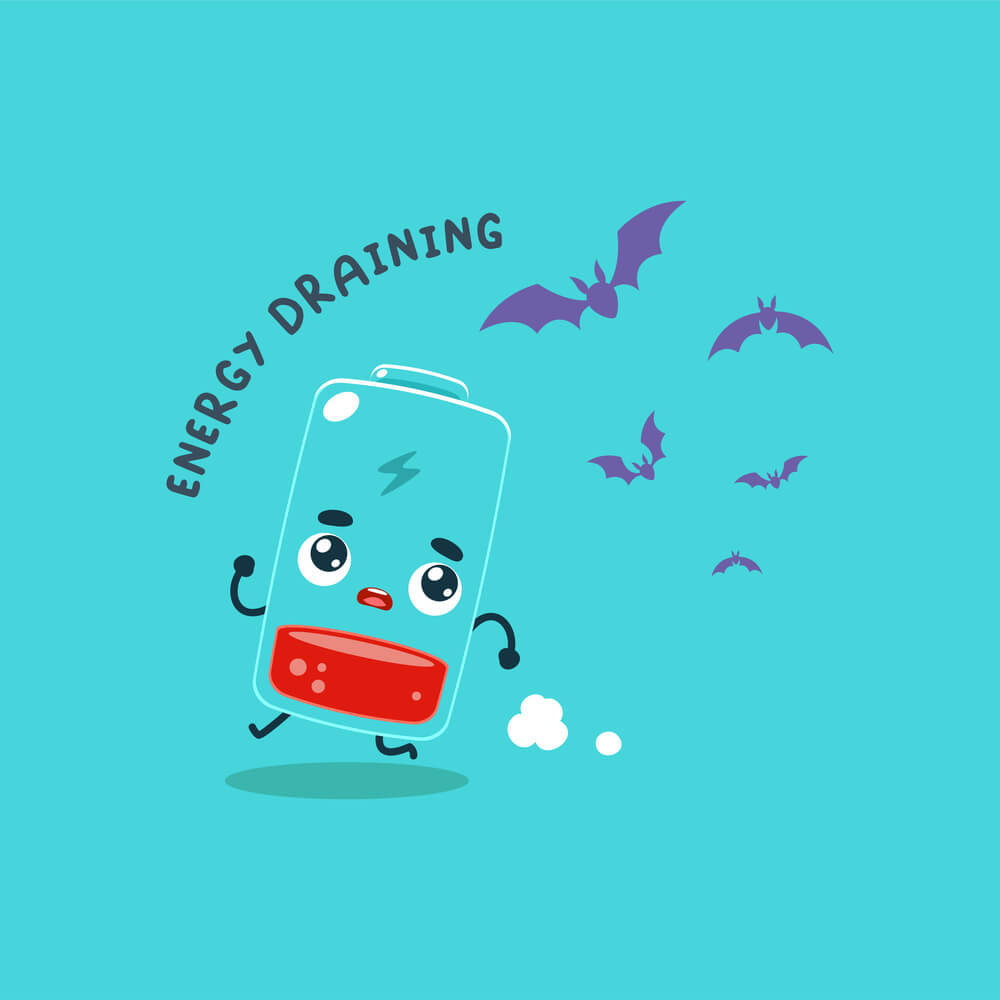
Some of you live far away from your mom, who now needs care. Do you consider yourself a long-distance caregiver? If you can answer “yes” to any of the following, you are a long-distance caregiver. If everyone works with their strengths, it really will make the tasks much easier.
1. Do you provide care for a loved one who lives more than an hour away from you?
2. Do you help manage your loved one’s medical care, such as scheduling appointments, communicating with doctors, or managing medications?
3. Do you provide emotional support to your loved one, such as phone calls or video chats?
4. Do you help coordinate care with other family members or caregivers?
5. Do you provide financial support to your loved one, such as paying for medical bills or other expenses?
6. Do you provide practical support, such as arranging for home modifications or hiring a caregiver?
7. Do you experience stress or anxiety related to your caregiving responsibilities, even though you are not physically present with your loved one?
As a long-distance caregiver, there are several tasks you can perform to help your siblings who are caring for your mom. For example, you can help with finances, money management, or bill paying. You can also research and coordinate local resources, such as home care agencies or meal delivery services. Additionally, you can provide emotional support to your mom and your siblings by staying in touch regularly and offering a listening ear.
Caregiving can be a challenging and stressful job, and your siblings may appreciate some extra support and encouragement. One way to show your appreciation is by sending gift cards for things like restaurants, grocery stores, or online retailers. These gift cards can help your siblings take a break and focus on self-care, or they can be used to purchase items that will make caring for your mom easier.
Challenges of being a Long-Distance Caregiver
1. Limited access to information: Long-distance caregivers may not have access to all the information they need about their loved one’s health condition, medications, and medical history. This can make it difficult to provide the best possible care.
2. Difficulty in coordinating care: Long-distance caregivers may find it hard to coordinate care with other family members, healthcare providers, and community resources. This can result in gaps in care and missed appointments.
3. Emotional stress: Being a long-distance caregiver can be emotionally draining. It can be difficult to provide emotional support from a distance, and caregivers may feel guilty or helpless for not being able to be there in person.
4. Financial strain: Long-distance caregiving can be expensive, as caregivers may need to travel frequently to visit their loved one or pay for additional services.
5. Time constraints: Long-distance caregivers may have limited time to devote to caregiving, as they may have other responsibilities such as work and family obligations.
Understanding Long-Distance Caregiving
Here are a few tasks you can take care of from a distance:
- Paperwork: You can help your siblings with paperwork such as insurance claims, medical bills, and legal documents. You can also help them keep track of important dates and deadlines.
- Medical Communications: You can communicate with your mom’s doctors and nurses to get updates on her health. You can also help your siblings understand medical terminology and treatment options.
- Technology: You can help your siblings set up and use technology such as video chat, email, and social media to stay in touch with your mom and each other.
- Emotional Support: You can provide emotional support to your siblings and your mom. You can listen to their concerns and offer encouragement and advice.
In addition to these tasks, you can also send gift cards to your siblings to help them with their caregiving duties. Here are a few gift cards that would be helpful for caregivers:
- Restaurant Gift Cards: Caregivers often don’t have time to cook, so restaurant gift cards can be a lifesaver. They can use them to order takeout or dine in when they need a break.
- Gas Gift Cards: Caregivers often have to drive long distances to take their loved ones to appointments. Gas gift cards can help them save money on gas and make their trips more affordable.
- Grocery Gift Cards: Caregivers often have to juggle their caregiving duties with work and other responsibilities. Grocery gift cards can help them save time and money on groceries.
Tasks a Long-Distance Caregiver Can Perform
As a long-distance caregiver, you can provide valuable support to your siblings who are caring for your mom. Here are some tasks you can perform even from a distance:
Coordinating Medical Appointments
One of the most important tasks a long-distance caregiver can do is to coordinate medical appointments. You can help by researching doctors and specialists in your mom’s area, scheduling appointments, and reminding your siblings of upcoming appointments. You can also help by keeping track of test results and medical records and communicating with doctors and other healthcare providers on behalf of your mom.
Managing Finances
Managing finances can be a time-consuming and stressful task for caregivers. As a long-distance caregiver, you can help by managing your mom’s finances. You can help by paying bills, balancing accounts, and managing investments. You can also help by researching financial assistance programs and benefits that your mom may be eligible for. Get your powers of attorney in place, if you have not done so.
Organizing Medication Schedules
Managing medication schedules can be a complicated task for caregivers. You can help by creating a medication schedule for your mom, reminding your siblings of when medications need to be taken, and ensuring that medications are refilled on time,
Providing Emotional Support
Caring for a loved one can be emotionally draining for caregivers. As a long-distance caregiver, you can provide emotional support to your siblings. You can help by listening to their concerns, offering words of encouragement, and providing a shoulder to lean on. You can also help by researching support groups and resources in your mom’s area that can provide additional emotional support. You can also let them vent. Just listen and empathize. No fixing, no explaining, no excuses, no nothing…just listen and acknowledge what they are saying. Remember, you don’t have to agree with them to understand them. I want to know if they are venting, if I don’t know that they are venting then I automatically go into “fix it” mode.
In addition to these tasks, you can also provide practical support by sending gift cards that can help your siblings with their caregiving duties. Gift cards for meal delivery services, house cleaning services, and transportation services can be especially helpful. By taking on these tasks and providing practical support, you can make a meaningful difference in your mom’s care and support your siblings in their caregiving duties.
Gift Cards for Caregivers
As a long-distance caregiver, one of the best ways to help siblings caring for mom is by providing them with gift cards. Gift cards can be a great way to offer support and show your appreciation for all the hard work they do. Here are some gift card options that can help caregivers:
Grocery Store Gift Cards
Grocery store gift cards can be a great option for caregivers. They can use these gift cards to buy groceries and other necessities for themselves and the person they are caring for. This can help ease the financial burden of caregiving and allow them to focus on providing care. Some popular grocery store gift cards include Walmart, Target, and Amazon.
Online Shopping Gift Cards
Online shopping gift cards can be a convenient option for caregivers who may not have the time or energy to go out and shop. They can use these gift cards to purchase items they need, such as medical supplies, personal care items, and household essentials. Some popular online shopping gift cards include Amazon, Walmart, and Target.
Meal Delivery Service Gift Cards
Meal delivery service gift cards can be a great way to provide caregivers with a break from cooking. They can use these gift cards to order meals for themselves and the person they are caring for. This can help save time and reduce stress. Some popular meal delivery service gift cards include Uber Eats, Grubhub, and DoorDash.
Home Cleaning Service Gift Cards
Home cleaning service gift cards can be a great way to help caregivers keep their home clean and tidy. They can use these gift cards to hire a professional cleaning service to come in and clean their home. This can help reduce stress and free up time for caregiving. Some popular home cleaning service gift cards include Merry Maids, Molly Maid, and Handy.
Overall, gift cards can be a great way to support caregivers from a distance. They can help ease the financial burden of caregiving and provide caregivers with a break from their responsibilities. When choosing gift cards, consider the specific needs of the caregiver and the person they are caring for.
Utilizing Technology for Long-Distance Caregiving
Video Call Applications
Video call applications like Skype, Zoom, and FaceTime can help you stay in touch with your mom and siblings, and even participate in care meetings from a distance. You can use these apps to check in on your mom and see how she is doing, or to join in on discussions about her care plan.
Medical Alert Systems
Medical alert systems can provide peace of mind for both you and your mom. These systems can help your mom get immediate assistance if she falls or experiences a medical emergency. Some medical alert systems also offer additional features like medication reminders and GPS tracking, which can be especially helpful for long-distance caregivers.
Online Grocery Shopping
Online grocery shopping can be a lifesaver for long-distance caregivers who want to help out with practical tasks like grocery shopping. Many grocery stores now offer online ordering and delivery services, which can save your siblings time and energy. You can also send your siblings gift cards for grocery stores or meal delivery services to help ease the financial burden of caregiving.
Ask the hands-on caregiver what gift cards they would like and use. Not everyone likes the same restaurants or stores that you like.




